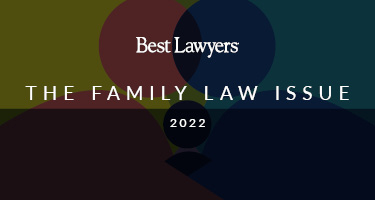And the biggest employment case of 2017—is not here yet.
The reality is that everyone will be eagerly waiting another four to six months for the biggest and most-anticipated employment case of 2017: class action waivers.
While the Supreme Court of the United States’ taking certiorari in January 2017 and likely issuing its decision in late 2017/early 2018—unequivocally the biggest thing 2017 will see—several other cases and developments so far in 2017 are worthy of discussion.
Class Action Waivers
Employers and employment lawyers almost universally agree that the biggest employment case of 2017 is yet to come as the Supreme Court has agreed to take up the contentious issue of class action waivers. Since the National Labor Relation Board’s (NLRB) January 2012 ruling in D.R. Horton, Inc., 357 NLRB No. 184 (2012), in which the NLRB held that employers cannot use class action waivers in arbitration agreements with employees covered by the National Labor Relations Act, most federal courts have disagreed with the NLRB’s decision. Specifically, the Fifth Circuit refused to enforce D.R. Horton. Multiple courts followed suit, including the Second and Eighth Circuits. Undeterred, the NLRB continued to adhere to its position and rejected the Second, Fifth, and Eighth Circuits’ rulings, including in its board decision in Murphy Oil USA, Inc., 361 NLRB No. 72 (2014). In May 2016, in Epic Systems Corp. v. Lewis, the Seventh Circuit became the first federal appellate court to agree with the NLRB’s ruling in D.R. Horton, and in August 2016, it was joined by the Ninth Circuit following suit in Ernst & Young LLP v. Morris.
This circuit split that developed over the past four years of hotly contested litigation directly paved the way to the Supreme Court, which accepted certiorari on January 13, 2017, when it agreed to hear the Murphy Oil, Lewis, and Morris appeals in one consolidated case. The Supreme Court’s decision is expected around January 2018 (but possibly in late 2017) and is highly anticipated because of the turmoil and uncertainty created by courts regularly enforcing arbitration agreements with class action waivers while the NLRB routinely files unfair labor practice charges against employers that maintain such agreements. This is untenable for employers, and much-needed clarity will hopefully be forthcoming in this decision.
Medical Marijuana
One of the most groundbreaking cases of 2017 so far is the Massachusetts Supreme Judicial Court’s decision allowing a medical marijuana user to assert a state law disability discrimination claim. On July 17, 2017, the Massachusetts Supreme Judicial Court issued a unanimous ruling in Barbuto v. Advantage Sales and Marketing, LLC, allowing medical marijuana users to assert claims for disability discrimination under the Massachusetts Fair Employment Practices Act. In the same ruling, however, the court also held that the Massachusetts Act for the Humanitarian Medical Use of Marijuana (the Massachusetts Medical Marijuana Act) does not provide an implied, private right of action by employees against employers. The court also declined to recognize an action for violation of public policy within the context of adverse employment actions against medical marijuana users.
The decision, which is the outcome of the first medical marijuana case considered by the Massachusetts Supreme Judicial Court, has a potentially far-reaching effect, even outside of Massachusetts and even considering the fact that this was not a case decided under the Americans with Disabilities Act (ADA). Notably, the Massachusetts Supreme Judicial Court became the first appellate court in any jurisdiction to hold that medical marijuana users may assert state law handicap or disability discrimination claims, regardless of whether the state’s medical marijuana statute provides explicit employment protections. Notably, Massachusetts’ medical marijuana statute does not provide such employment protections.
Fortunately, the decision also provides important food for thought on how to avoid potential pitfalls when dealing with medical marijuana users at work. With medical marijuana being legal in 29 states (Alaska, Arizona, Arkansas, California, Colorado, Connecticut, Delaware, Florida, Hawaii, Illinois, Maine, Maryland, Massachusetts, Michigan, Minnesota, Montana, Nevada, New Hampshire, New Jersey, New Mexico, New York, North Dakota, Ohio, Oregon, Pennsylvania, Rhode Island, Vermont, Washington, and West Virginia), plus the District of Columbia, and medical marijuana legislation currently pending in 12 states (Indiana, Iowa, Kentucky, Missouri, Nebraska, North Carolina, Oklahoma, South Carolina, Tennessee, Texas, Utah, and Wisconsin). This first-of-its-kind case is a must-read for its possible implications.
First, be cautious of the possible knee-jerk reaction that an employer’s engagement with a user begins and ends with marijuana remaining illegal under federal law. In reading the Massachusetts Supreme Judicial Court’s opinion, it is evident that the court was waiting on an opportunity to emphatically rebut any argument raised by an employer that an adverse employment action against a medical marijuana user is justifiable solely because marijuana is categorized as an illegal controlled substance under federal law. Although this argument was never raised by Advantage Sales and Marketing LLC in this case, the court addressed (and rebutted) this argument anyway. Other state courts may take a similar stance as this issue moves forward.
Second, the case starkly reminds employers to engage in interactive dialogue with employees and applicants using medical marijuana to determine if they can perform the essential functions of the job with a reasonable accommodation. The Massachusetts Supreme Judicial Court clearly mandated engagement in the interactive process and strongly insinuated that the interactive process should primarily consist of an employer’s determining whether a medical marijuana user is able to take any alternative medications to treat his or her medical issue. The quagmire this could create is significant and beyond this threshold question, however, employers are left without clear direction on what to do next. If the individual could treat his or her condition by other means, then that would qualify as a reasonable accommodation and one that an employer could live with. However, if marijuana is the only suitable treatment, an employer is faced with the difficult decision of what to do next.
Third, the court acknowledged that an employer may be able to show that it would suffer an “undue hardship” in accommodating marijuana use for a medical marijuana user if the employer were subject to any contractual or statutory obligations, such as Department of Transportation regulations or the Drug-Free Workplace Act that governs federal contractors. Further case law developments similar to this case and on issues such as undue hardship and safety-sensitive positions are a likely next frontier in 2017 and beyond.
The Constellation of LGBTQIA+ Cases, Briefs, and Guidance
Media coverage has been extensive surrounding several key employment cases involving lesbian, gay, bisexual, transgender, queer, questioning, intersex, asexual (LGBTQIA+) employees and their rights, including Hively v. Ivy Tech Community College of Indiana and Zarda v. Altitude Express. The issue of whether Title VII’s prohibition on sex discrimination includes a bar on sexual orientation discrimination remains a hotly contested legal issue, especially after the U.S. Department of Justice pivoted on the issue when it filed an amicus brief with the Second Circuit as part of the court’s en banc review in Zarda. There, the DOJ adopted the position that Title VII does not protect against sexual orientation discrimination based on a plain reading of the statute, as well as on other grounds.
Juxtapose the DOJ’s newly articulated stance to the reiteration by the acting director of the U.S. Equal Employment Opportunity Commission (EEOC) that the EEOC will continue to interpret Title VII’s ban on sex discrimination as encompassing sexual orientation discrimination, and employers are left, now more than ever, with a complicated patchwork of state, county, and local laws containing varying protections based on different definitions of gender, gender identity, gender expression, etc.
Along with cases battling it out over this core question, other important LGBTQIA+ employment issues continue to wind themselves through the courts. Two recent cases illustrate this point. First, in Blatt v. Cabela’s Retail, Inc., the U.S. District Court for the Eastern District of Pennsylvania denied the employer’s motion to dismiss the former employee’s claims for failure to accommodate, disability discrimination, and retaliation under the ADA in its May 18, 2017, order. Even though the ADA expressly excludes gender identity disorders from the definition of an ADA-covered disability, the district court ruled that the former employee’s claims based on gender dysphoria survived based on the court’s adoption of a narrow reading of the ADA’s express exclusions from the definition of disability. The district court reached this conclusion by interpreting the term “gender identity disorders” narrowly to “refer to only the condition of identifying with a different gender, not to encompass (and therefore exclude from ADA protection) a condition like Blatt’s gender dysphoria, which goes beyond merely identifying with a different gender and is characterized by clinically significant stress and other impairments that may be disabling.” Those trying to keep up with the seismic changes in the LGBTQIA+ area of law would be well-advised to keep in mind that, regardless of how this or related cases are decided, the ADA is to be read liberally. Case in point: even if an employee has a diagnosis or condition that the ADA expressly excludes, such as gender identity disorder, related or associated medical conditions may well rise to the level of ADA-covered disability.
Second, on August 10, 2017, three married couples filed suit in the U.S. District Court for the Southern District of Texas against the City of Houston regarding health coverage and other benefits for the same-sex spouses of city employees.
State court decisions predating the federal lawsuit questioned whether Texas municipalities must extend equal access to spousal benefits, such as health insurance, to the legal same-sex spouses of municipal employees, just as benefits are provided for other married employees.
The case is just one of many that wrestles with the ramifications of the Supreme Court’s groundbreaking 2015 decision in Obergefell v. Hodges, which granted same-sex couples the right to marriage “on the same terms and conditions as opposite-sex couples.” The new lawsuit comes on the heels of the Supreme Court’s summary reversal on June 26, 2017, of an Arkansas Supreme Court ruling, in which the Supreme Court held differential treatment of same-sex spouses on birth certificates constituted differential treatment that infringed on “Obergefell’s commitment to provide same-sex couples ‘the constellation of benefits that the States have linked to marriage.’”
If a common theme could be drawn from these cases, it’s that the year is shaping up to be tumultuous and unpredictable in the employment and labor realm, just as in many other areas of law and society.

































